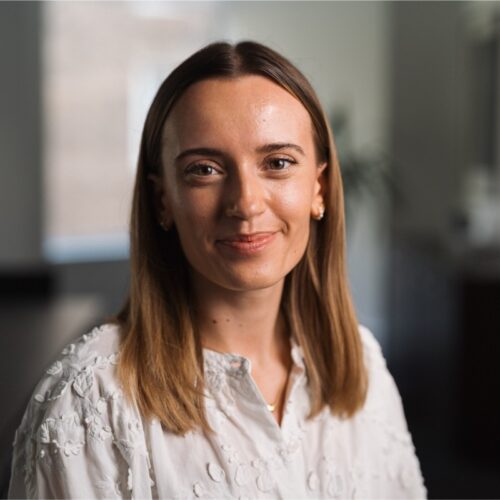
With sanctions against Syria steadily diminishing, governments and private sectors globally are turning their attention towards the country’s reconstruction. Here is our analysis on the current status of restrictions and how to navigate Syria’s volatile political landscape while capitalizing on the commercial opportunities.
Overview
Syria has consistently made headlines following the unexpected and swift collapse of the Assad regime in December 2024. In UK Foreign Secretary David Lammy’s statement to Parliament earlier this week, he stressed the UK’s desire to engage with the country under its new leadership, while acknowledging the volatility that still prevails in the south.
The Assad regime’s collapse was preceded by an offensive spearheaded by oppositional faction Hayat Tahrir Al Sham (HTS). Syria had been under the rule of the Assad family since 1971, latterly including 13 years of civil war in which opposition to Bashar Al Assad’s regime was repressed and the country effectively operated as a one-party state. HTS’s victory in overthrowing this well-established autocracy took the world by surprise.
Although still designated as a terrorist entity at the time, HTS was lauded by some as a de-radicalized entity that had the potential to transition from a non-state actor to a governing body. The questions were soon posed — when and how would Syria be rebuilt, and who would be leading its reconstruction?
The primary obstacles to this reconstruction were soon removed by the US, EU, and UK, who collectively lifted their sanctions on Syria. Transactions with the Syrian government were authorized, energy-related export restrictions lifted, and correspondent banking relaunched. Syria has since completed its first international financial transactions since the outbreak of the war, rejoining the SWIFT payment system after over a decade of being disconnected. The Damascus Stock Exchange has quietly reopened, and several regional airlines have resumed limited commercial flights into Aleppo and Latakia, signaling early steps toward international reintegration. Licenses have been issued for reconstruction-related activity in water treatment, healthcare infrastructure, and power generation, offering signals of what the international community deems to be safe sectors for early engagement. In perhaps the most significant update of recent weeks, the US and UN have announced they will revoke the terrorist designation of HTS, further reinforcing the West’s commitment to reengage with Syria post-regime change.
While significant hurdles to business in one of the world’s most heavily sanctioned jurisdictions have been lifted, targeted measures remain in place, namely for dual-use goods and military equipment, and against Assad regime figures. The latter is significant here; while many of Assad’s inner circle have fled the country, those whose links to the former president are less publicized are likely to remain. There remains a real risk that Assad may continue to manage his ill-gotten wealth through proxies in the country, not all of whom are sanctioned. Estimates of the value of funds taken out of the Syrian economy by Assad and his family are staggering, ranging from $1 billion, according to the US Department of State’s report to Congress on the Assad family’s net worth and income, to over $10 billion when taking into account the assets of his associates.
The speed at which restrictions have been lifted is significant, and if stability continues under the interim government, it is likely that progress will continue at pace. Equally, these measures could be reversed as quickly as they have been applied, as restrictions have so far been lifted via the issuance of General Licenses, which function as exceptions to sanctions programs, rather than amendments to the programs themselves. This ultimately highlights global recognition that the situation remains volatile and caution has been applied accordingly.
So, what next?
From our conversations with sanctions experts in recent weeks, we expect that initial investment activity in the country is likely to focus first on getting the grid back up and running, given the significant infrastructure damage caused by the war, which has left residents only four hours of state electricity per day. This will require the efforts of large international players able to operate at the necessary scale. The involvement of medium-sized companies is likely to be limited to trade, a sector similarly poised to reap the rewards of reengagement. Trade between Syria and Turkey, for example, has already increased by over 60% as direct land routes reopen. As for maritime routes, one French shipping company has recently signed a 30-year agreement with the Syrian government to develop and manage Syria’s primary port at Latakia.
The scale of reconstruction required will undoubtedly necessitate public and private sector collaboration. This was emphasized by a representative from OFAC speaking at a recent sanctions conference Sigma7 Alaco attended in Berlin, additionally noting the breadth of sanctions on Syria and the scale of the challenges to therefore overcome. In this vein, another of our sanctions contacts in Germany stated that the German government is actively encouraging domestic companies to invest in Syria.
Finally, no matter the industry, international and domestic financial institutions will be involved across the board. To this extent, a UN representative we interviewed observed that Western and Syrian banks are eager to get to know each other and build mutual trust to enable the financing of such critical projects. Understanding of compliance processes, including AML/CFT policies and the level of customer information available to the banks, will be a key part of these relationships.
The overarching feedback from sanctions lawyers and experts is this: AML and CFT risks remain, in spite of the positive outlook, and investors looking to capitalize on the opportunities for development in Syria should review compliance measures, utilize enhanced due diligence processes, and remain cautious as to their risk exposure. Investors globally are already evaluating how they can play a part in Syria’s reconstruction while mitigating risk. For those who take these steps seriously, opportunities are ripe.







